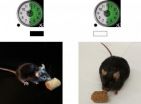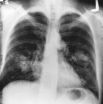(Press-News.org) Mental health experts from Meharry Medical College School of Medicine have released the first comprehensive report on the correlation between the incarceration of African American males and substance abuse and other health problems in the United States. Published in Frontiers in Psychology on the 12th of November, the report looks at decades of data concerning the African American population rates of incarceration and subsequent health issues. The authors conclude that the moral and economic costs of current racial disparities in the judicial system are fundamentally avoidable, especially if more resources are spent on education and treatment.
"Instead of getting health care and education from civil society, African American males are being funneled into the prison system. Much of this costly practice could be avoided in the long-term by transferring funds away from prisons and into education," says Dr. William D Richie, assistant professor in the Department of Psychiatry and Behavioral Sciences at Meharry Medical College, lead author of the paper.
Money would be better spent on treatment than on incarceration
The study highlights the fact that with regard to African American males in the prison system, individual States are paying more to lock up non-violent offenders than they are for education, since 60% of incarcerations are due to non-violent, illicit drug-related crimes. The authors also point to a previous study from 2,000 showing that the total cost of substance abuse--be it incarceration, crime or treatment--is over $500 billion per year for the US.
These and other statistics have led the authors--scientific experts often called upon to testify in court--to conclude in the paper that: "Spending money on prevention and intervention of substance abuse treatment programs will yield better results than spending on correctional facilities."
Need more teachers of color
Even though crime rates have dropped across the country over the past two decades, incarceration rates have continued to skyrocket--with black people accounting for a largely disproportionate 38% of inmates. More alarmingly, incarceration rates for African American males jumped 500% between 1986 and 2004. And while substance abuse increases the chances of individuals' ending up in prison, those without any previous history of substance abuse have a higher risk of substance abuse once they leave the prison system, and could more easily fall back into the judicial system instead of getting a solid job or education.
According to Richie, much of this disparity is due to a fundamental problem of perception on both sides. For example, negative reinforcement of disruptive behavior is prevalent already in preschool--young children of color are often treated more harshly for behavior similar to their white peers.
"One step in the right direction, would be to have more black teachers during the early stages of development" says Dr. Richie. "From a behavioral scientific perspective, having teachers that look like the students and the parents of students from an early age could go a long way in changing perceptions of authority for black youth."
Getting more African American teachers means increasing the number of African Americans in the higher education system and getting them out of the incarceration system. In the end, the authors conclude, effective treatment of substance use disorders and alternatives to prison would cost the United States much less and improve the lives of African American males, their families, and the entire country.
###
Article Information:
Title: Overview of substance use disorders and incarceration of African American males
Authors: Mukku Venkata K, Benson Timothy G, Alam Farzana, Richie William Donald, Bailey Rahn Kennedy
Journal: Frontiers in Psychiatry
DOI=10.3389/fpsyt.2012.00098
http://www.frontiersin.org/forensic_psychiatry/10.3389/fpsyt.2012.00098/abstract
Researcher Contact:
William D. Richie, M.D., F.A.P.A.
Board Certified in
General and Forensic Psychiatry
Director, Division of Forensic Psychiatry
Department of Psychiatry and Behavioral Sciences
Meharry Medical College
1005 Dr. D. B. Todd, Jr. Boulevard
Nashville, Tennessee 37208-3599
615-327-6823 (Office)
615-484-1112 (Cell)
WRichie@MMC.edu
Systematic incarceration of African American males is a wrong, costly path
New US study says money spent on prison system and war on drugs should go towards education
2012-11-12
ELSE PRESS RELEASES FROM THIS DATE:
Report offers new guidance on family involvement of child abuse case reviews
2012-11-12
Child protection professionals are to be offered new guidance on how best to involve families in the case reviews that follow the death or serious injury of a child as a result of abuse or neglect.
A report being launched today (Monday November 12) will reveal the results of a study led by experts at The University of Nottingham and commissioned by the British Association for the Study and Prevention of Child Abuse and Neglect (BASPCAN).
The research explored the personal experiences of both professionals and families to make recommendations on best practice in this ...
Early stress may sensitize girls' brains for later anxiety
2012-11-12
MADISON — High levels of family stress in infancy are linked to differences in everyday brain function and anxiety in teenage girls, according to new results of a long-running population study by University of Wisconsin-Madison scientists.
The study highlights evidence for a developmental pathway through which early life stress may drive these changes. Here, babies who lived in homes with stressed mothers were more likely to grow into preschoolers with higher levels of cortisol, a stress hormone. In addition, these girls with higher cortisol also showed less communication ...
Climate change threatens giant pandas' bamboo buffet – and survival
2012-11-12
China's endangered wild pandas may need new dinner reservations – and quickly – based on models that indicate climate change may kill off swaths of bamboo that pandas need to survive.
In this week's international journal Nature Climate Change, scientists from Michigan State University and the Chinese Academy of Sciences give comprehensive forecasts of how changing climate may affect the most common species of bamboo that carpet the forest floors of prime panda habitat in northwestern China. Even the most optimistic scenarios show that bamboo die-offs would effectively ...
It's not just what you eat, but when you eat it
2012-11-12
PHILADELPHIA - Fat cells store excess energy and signal these levels to the brain. In a new study this week in Nature Medicine, Georgios Paschos PhD, a research associate in the lab of Garret FitzGerald, MD, FRS director of the Institute for Translational Medicine and Therapeutics, Perelman School of Medicine, University of Pennsylvania, shows that deletion of the clock gene Arntl, also known as Bmal1, in fat cells, causes mice to become obese, with a shift in the timing of when this nocturnal species normally eats. These findings shed light on the complex causes of obesity ...
Using rust and water to store solar energy as hydrogen
2012-11-12
How can solar energy be stored so that it can be available any time, day or night, when the sun shining or not? EPFL scientists are developing a technology that can transform light energy into a clean fuel that has a neutral carbon footprint: hydrogen. The basic ingredients of the recipe are water and metal oxides, such as iron oxide, better known as rust. Kevin Sivula and his colleagues purposefully limited themselves to inexpensive materials and easily scalable production processes in order to enable an economically viable method for solar hydrogen production. The device, ...
A better brain implant: Slim electrode cozies up to single neurons
2012-11-12
ANN ARBOR—A thin, flexible electrode developed at the University of Michigan is 10 times smaller than the nearest competition and could make long-term measurements of neural activity practical at last.
This kind of technology could eventually be used to send signals to prosthetic limbs, overcoming inflammation larger electrodes cause that damages both the brain and the electrodes.
The main problem that neurons have with electrodes is that they make terrible neighbors. In addition to being enormous compared to the neurons, they are stiff and tend to rub nearby cells ...
Gene variations linked to lung cancer susceptibility in Asian women
2012-11-12
An international group of scientists has identified three genetic regions that predispose Asian women who have never smoked to lung cancer. The finding provides further evidence that risk of lung cancer among never-smokers, especially Asian women, may be associated with certain unique inherited genetic characteristics that distinguishes it from lung cancer in smokers.
Lung cancer in never-smokers is the seventh leading cause of cancer deaths worldwide, and the majority of lung cancers diagnosed historically among women in Eastern Asia have been in women who never smoked. ...
Detection, analysis of 'cell dust' may allow diagnosis, monitoring of brain cancer
2012-11-12
A novel miniature diagnostic platform using nuclear magnetic resonance (NMR) technology is capable of detecting minuscule cell particles known as microvesicles in a drop of blood. Microvesicles shed by cancer cells are even more numerous than those released by normal cells, so detecting them could prove a simple means for diagnosing cancer. In a study published in Nature Medicine, investigators at the Massachusetts General Hospital (MGH) Center for Systems Biology (CSB) demonstrate that microvesicles shed by brain cancer cells can be reliably detected in human blood through ...
Researchers discover 2 genetic flaws behind common form of inherited muscular dystrophy
2012-11-12
SEATTLE – An international research team co-led by a scientist at Fred Hutchinson Cancer Research Center has identified two genetic factors behind the third most common form of muscular dystrophy. The findings, published online in Nature Genetics, represent the latest in the team's series of groundbreaking discoveries begun in 2010 regarding the genetic causes of facioscapulohumeral muscular dystrophy, or FSHD.
The team, co-led by Stephen Tapscott, M.D., Ph.D., a member of the Hutchinson Center's Human Biology Division, discovered that a rare variant of FSHD, called type ...
Touch-sensitive plastic skin heals itself
2012-11-12
Nobody knows the remarkable properties of human skin like the researchers struggling to emulate it. Not only is our skin sensitive, sending the brain precise information about pressure and temperature, but it also heals efficiently to preserve a protective barrier against the world. Combining these two features in a single synthetic material presented an exciting challenge for Stanford Chemical Engineering Professor Zhenan Bao and her team.
Now, they have succeeded in making the first material that can both sense subtle pressure and heal itself when torn or cut. Their ...
LAST 30 PRESS RELEASES:
Jeonbuk National University researchers develop an innovative prussian-blue based electrode for effective and efficient cesium removal
Self-organization of cell-sized chiral rotating actin rings driven by a chiral myosin
Report: US history polarizes generations, but has potential to unite
Tiny bubbles, big breakthrough: Cracking cancer’s “fortress”
A biological material that becomes stronger when wet could replace plastics
Glacial feast: Seals caught closer to glaciers had fuller stomachs
Get the picture? High-tech, low-cost lens focuses on global consumer markets
Antimicrobial resistance in foodborne bacteria remains a public health concern in Europe
Safer batteries for storing energy at massive scale
How can you rescue a “kidnapped” robot? A new AI system helps the robot regain its sense of location in dynamic, ever-changing environments
Brainwaves of mothers and children synchronize when playing together – even in an acquired language
A holiday to better recovery
Cal Poly’s fifth Climate Solutions Now conference to take place Feb. 23-27
Mask-wearing during COVID-19 linked to reduced air pollution–triggered heart attack risk in Japan
Achieving cross-coupling reactions of fatty amide reduction radicals via iridium-photorelay catalysis and other strategies
Shorter may be sweeter: Study finds 15-second health ads can curb junk food cravings
Family relationships identified in Stone Age graves on Gotland
Effectiveness of exercise to ease osteoarthritis symptoms likely minimal and transient
Cost of copper must rise double to meet basic copper needs
A gel for wounds that won’t heal
Iron, carbon, and the art of toxic cleanup
Organic soil amendments work together to help sandy soils hold water longer, study finds
Hidden carbon in mangrove soils may play a larger role in climate regulation than previously thought
Weight-loss wonder pills prompt scrutiny of key ingredient
Nonprofit leader Diane Dodge to receive 2026 Penn Nursing Renfield Foundation Award for Global Women’s Health
Maternal smoking during pregnancy may be linked to higher blood pressure in children, NIH study finds
New Lund model aims to shorten the path to life-saving cell and gene therapies
Researchers create ultra-stretchable, liquid-repellent materials via laser ablation
Combining AI with OCT shows potential for detecting lipid-rich plaques in coronary arteries
SeaCast revolutionizes Mediterranean Sea forecasting with AI-powered speed and accuracy
[Press-News.org] Systematic incarceration of African American males is a wrong, costly pathNew US study says money spent on prison system and war on drugs should go towards education



